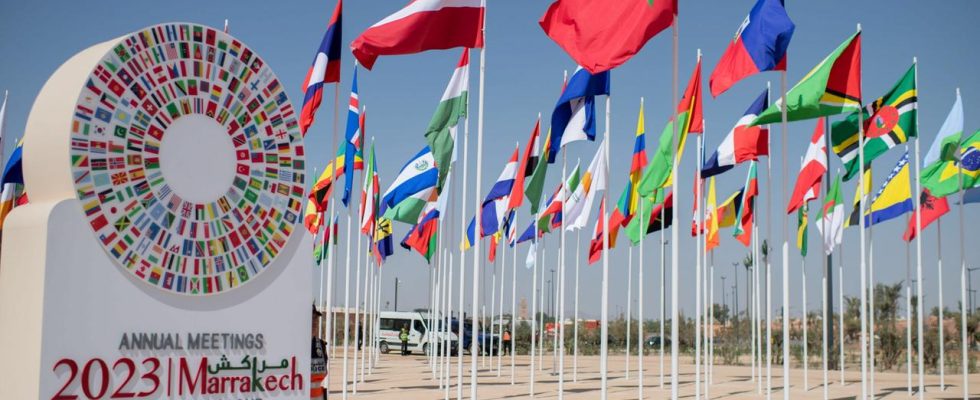The financial world meets in Morocco – and also discusses a more modern World Bank. In times of crises and climate change, poor countries should receive more loans. But there is also criticism of the plans.
The contrast could hardly be greater: where exactly a month ago people slept on the streets for days out of fear of further tremors, now a sea of flags is waving: to welcome ministers, central bank heads, bankers and scientists and employees of the two major organizations, the IMF and the World Bank. The world’s concentrated financial expertise is visiting Morocco.
World Bank President Ajay Banga
For a moment it looked as if the kingdom would have to cancel because of the earthquake, but now the conference is still on. This is a financial boost for Morocco – and prestige to boot. And for the World Bank? “There is a lot to do together here,” said the new World Bank President Ajay Banga, formerly head of Mastercard: “We are here to work.” What lies ahead is more than just a simple regular meeting between two gigantic multilateral institutions.
Habitable planet as part of the mission
It has been agreed for a long time that the World Bank needs to reform. Adapting to new challenges such as climate change. But how this should work and who pays for it has so far been controversial.
Dirk Reinermann, Director of Development Finance, expects the reform plans to be approved by the end of the week. The reform, he explains, consists of three building blocks: First, the World Bank will change its mission; in addition to fighting poverty, it now has an explicit global task: to preserve the “livable planet.”
Operationally, new instruments are needed: In addition to the existing promotion of prosperity in developing countries, climate change must now also be taken into account. For South Africa, for example, this could mean that the World Bank grants loans to green energy producers – in order to help shape the path away from fossil energy sources.
One thing is clear: the World Bank needs more money for this, and that is the third component of the reform. The list of where this could come from is long: Among other things, the aim is to mobilize more private capital and local tax resources and increase financial efficiency.
Funders wanted – Germany is paying
And why not just increase the bank’s capital? Some countries are apparently opposed to this because it would also result in a shift in voting rights – and possibly in favor of China.
A step forward, according to Reinermann, could be so-called hybrid capital: “Germany – as Chancellor Scholz announced at the recent G20 conference – is giving 305 million euros to the World Bank, which can increase this amount eightfold through its leverage on the capital markets. That would be around 2.5 billion euros in lending volume. Money that could then be used to combat poverty, climate change or to prevent pandemics.”
It all sounds good at first – the only question is whether donor and recipient countries think the same way about it. Niels Annen (SPD), Parliamentary State Secretary in the Federal Ministry for Economic Cooperation and Development, is certain: “The reform will really change the World Bank – and provide concrete instructions for action. The World Bank has been relatively conservative so far and must now show greater willingness to take risks.”
However, there were still many reservations about the reform in the spring, says Annen, especially because there were fears that the reorientation would result in a move away from the focus of the loans on state interests. Development Aid Minister Schulze has now been able to successfully mediate here.
Critics are calling for more transparency
Critics of the World Bank say the reforms do not go far enough. Dustin Schäfer from the Urgewald association, which campaigns for environmental protection and human rights, finds the reform disappointing; his organization wants more transparency: “It is insufficient for a public bank if the public cannot understand more than 40 percent of so-called climate financing and billions continue to flow into the extraction of fossils through indirect financing. In order to finally promote fossil fuels effectively and quickly To end fuels, coal, oil and gas must be added to the legally binding exclusion lists.”
And: the World Bank, as a specialized agency of the United Nations, lacks a human rights guideline. “Economic growth and the growth of the bank remain above all else,” complains Schäfer.
The reform of the World Bank is to be decided on Thursday in Marrakesh. What role the bank actually plays in saving the climate is likely to remain controversial. And so World Banker Reinermann sees Marrakesh as a milestone, not an end point.

